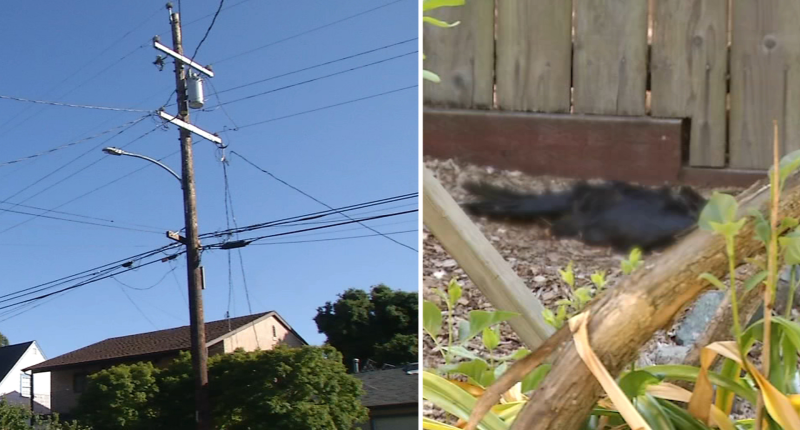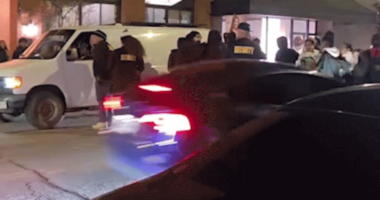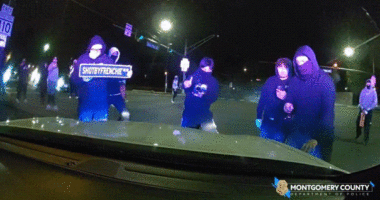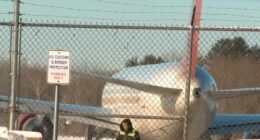Share this @internewscast.com
RICHMOND, Calif. — A troubling enigma has emerged in Richmond, California, where locals report a significant number of birds dying suddenly after perching on a specific stretch of power lines.
“It’s very traumatic,” local resident Maximilian Bolling said. “They just quickly explode, and it’s really violent.”
Video footage from a resident’s Ring security camera recorded a loud bang, followed by a bird plummeting to the ground as shocked onlookers reacted. The repeated “bang” is likened by residents to a BB gun or firecracker, occurring with increasing frequency.
Community members note that this issue began a few months back, resulting in at least 13 bird casualties. A nearby resident, who lives across from the problematic power lines and could not be interviewed, mentioned discarding several birds in her trash bin lately.
MORE: Starving brown pelicans turning up in strange places around Bay Area and beyond
“It was just horrifying,” resident Sharon Anderson said. “I didn’t even know what was happening at first.”
Bolling says he believes a missing protective seal or insulator on the power lines may be to blame.
Despite repeated reports to Pacific Gas and Electric Company, residents say little has been done.
“They looked up from the ground and said it was fine,” Bolling said, expressing frustration that crews have not made more of an effort to inspect the wires more closely.
ABC San Francisco affiliate KGO reached out to PG&E, who says it is investigating the issue.
MORE: Police say decapitated animals discovered in Fremont were sheep, but not investigating as crime
The resident who lives across from the power lines says she also filed a report with the Contra Costa County Sheriff’s Office, who did not immediately respond to a request for comment.
In the meantime, neighbors have posted signs on poles warning of the danger and urging witnesses to document incidents.
With fire season approaching, some fear the strange deaths could spark something even more dangerous.
“It’s cooler and wetter now, but if it happens in the summer, it could easily catch fire,” Bolling said. “We want this to be solved before that happens.”
Copyright © 2025 KGO-TV. All Rights Reserved.

















